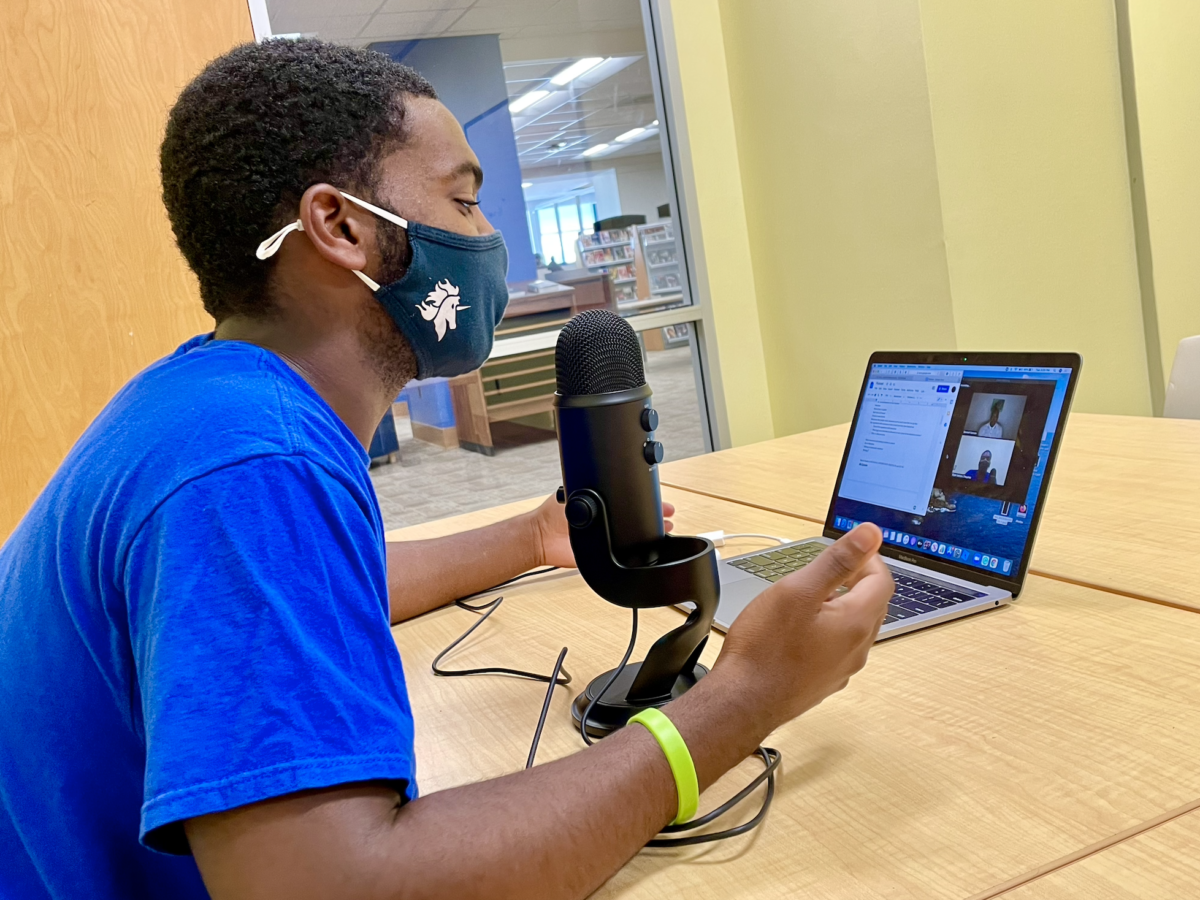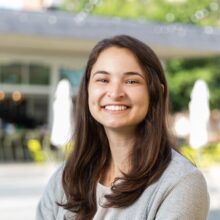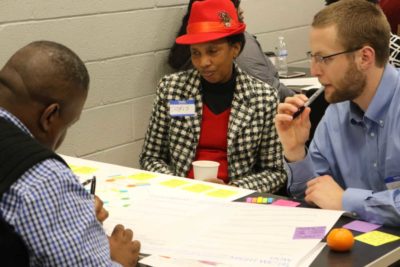
|
|
I want you to take a moment and check in with your body. How are you feeling? What do you notice?
These are the questions that Elijah Sellers and Gabby Taylor want you to ask yourself. In their new podcast, The Resilience Zone, these two students take listeners on a journey of finding resilience through accessible trauma-informed tools.
“Sometimes we have to go through heavy hitters, right? And we have to put our minds and our brains under this pressure in order for us to come out stronger,” says Sellers.
Both Sellers and Taylor are no strangers to “heavy hitters.’ They grew up in Edgecombe County, a place they love deeply but also where they both experienced significant traumas. Growing up, both students had high Adverse Childhood Experience scores (ACE scores). These scores are used to research the connection between childhood trauma and lifelong health and opportunity.
Research has shown that children with high ACE scores are more likely to experience health risks included but not limited to:
- alcoholism
- drug abuse
- depression and suicide attempt
- smoking
- sexually transmitted diseases
- physical inactivity and obesity
Growing up, Sellers and Taylor weren’t necessarily aware of the ins and outs of what having a high ACE score meant, but they were aware of the fact that they had experienced trauma. It wasn’t until they became involved with the Rural Opportunity Institute that they learned about the impact of the trauma they lived through and the opportunities for growth from those experiences.
The mission of the Rural Opportunity Institute reads:
We strive to end generational cycles of trauma and poverty by preventing adverse childhood experiences (ACEs) and toxic stress for the community in Edgecombe County, North Carolina.
In high school, Sellers and Taylor participated in a resiliency workshop and training with the organization. The tools they learned in that training changed their lives, and now they want to pass them on to whoever will listen.
“It doesn’t have to be complicated,” said Sellers. Both students believe resilience is for everyone, and people just need the tools and support to access it.
Each episode of The Resilience Zone will focus on a different tool for resetting the body and finding inner strength. The students hope you’ll follow along and try out the exercises as you listen.
You can subscribe to the podcast here and listen to the first episode embedded above.



